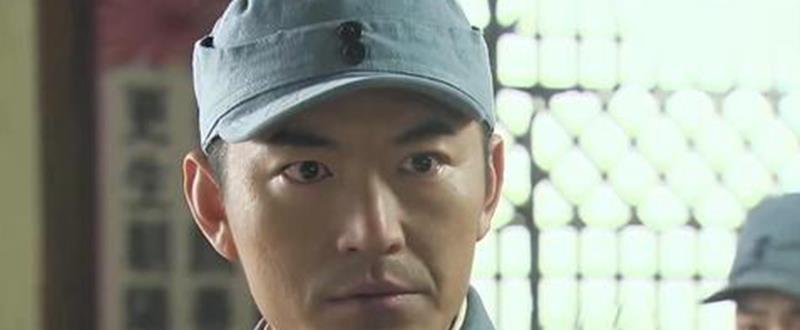On January 4, 1941, the Kuomintang 32nd Group Army surrounded the New Fourth Army, which was resisting the Japanese invaders in southern Anhui, creating the Anhui Incident that shocked China and foreign countries. In the course of the Anhui Incident, because the Kuomintang was prepared, the New Fourth Army suffered heavy losses, and at the last moment it could only disperse and break through.

On January 14, Ye Ting, commander of the New Fourth Army, was detained by the Kuomintang, so the dispersal breakout phase was commanded by Rao Shushi. Before the dispersed breakthrough, Rao Shushi and the column commander of the New Fourth Army deliberately formulated a plan for the breakthrough, but when it came time to break through, Zhao Lingbo, the deputy commander of the first column, issued a temporary order to the first column, asking the first column to abandon the scattered breakthrough and withdraw in place. Zhao Lingbo's order was immediately opposed by most of the officers of the First Column, such as Wang Huaisheng, chief of staff of the "Old Regiment", who refused to carry out Zhao Lingbo's order. So, what was the end of Wang Huaisheng's later life?
Wang Huaisheng was born in 1890, a native of Pingjiang, Hunan, to a poor peasant family, in order to make a living, he grew up a little bit to herd cattle for the landlord's family, did long work, and life was very difficult. At that time, Pingjiang was a famous revolutionary town, and Wang Huaisheng, who grew up here, was also influenced by the revolution, began to participate in the peasant movement, and joined the local peasant association.
In 1927, Wang Huaisheng became a full party member, and the following year he joined the Red Army and began to participate in the armed struggle against the Kuomintang dictatorship. In 1930, Wang Huaisheng's unit was incorporated into the Red 16th Army, and Wang Huaisheng served as the commander of the second battalion. After this, Wang Huaisheng insisted on guerrilla warfare in the Xiang'e-Gansu Border Region and accumulated rich revolutionary experience, and he was promoted from a battalion commander to deputy chief of staff of the Red 16th Division. After the failure of the fifth anti-"encirclement and suppression" campaign, the Red Army began the Long March, and Wang Huaisheng did not participate in the Long March, but remained in the Xiang'e-Gansu Border Region and persisted in guerrilla warfare for three years.
In 1937, after the outbreak of the War of Resistance Against Japan, the guerrilla forces in the eight southern provinces were reorganized into the New Fourth Army, and the Red Army guerrillas in the Xiang'e-Gansu Border Region joined the New Fourth Army a little later, and in January 1938, Wang Huaisheng's Red Army was officially reorganized into the New Fourth Army, and Wang Huaisheng also entered the first regiment of the first detachment of the New Fourth Army and served as the chief of staff of the first regiment.
The first regiment to which Wang Huaisheng belonged was called the "old regiment", and the reason why it was called the "old regiment" was mainly to distinguish it from the newly established first regiment established later, so the first regiment established first was called the "old regiment". In 1940, before the outbreak of the Anhui Incident, the New Fourth Army merged the "old regiment" with the "new regiment" and formed the first column of the New Fourth Army, which was directly commanded by the New Fourth Army.
In the Southern Anhui Incident, the "new regiment" and the "old regiment" scattered and broke through, and Wang Huaisheng's "old regiment" was led by Xiong Yingtang. However, in the process of the breakthrough, Zhao Lingbo, then deputy commander of the first column, violated the plan formulated before the breakthrough and issued a temporary order, asking Wang Huaisheng and others to stop the breakthrough and withdraw on the spot.
As the chief of staff of the "old regiment", Wang Huaisheng and others categorically refused Zhao Lingbo's temporary orders and continued to carry out the original plan, while the deputy commander Zhao Lingbo chose to surrender to the Kuomintang and became a traitor. It is worth mentioning that the Kuomintang troops encircling the New Fourth Army amounted to eight divisions, totaling more than 80,000 people, and the ratio of enemy to enemy was close to ten to one, so although Wang Huaisheng dispersed the breakthrough according to the original plan, he was seriously injured in the process of the breakthrough and was unfortunately captured by the Kuomintang.
After being captured, Wang Huaisheng was imprisoned by the Kuomintang in the Shangrao concentration camp. In the Shangrao concentration camp, the Kuomintang first thought of abducting Wang Huaisheng, but Wang Huaisheng was unyielding and unyielding, and he still did the work for his fellow prisoners in prison, persuading them not to give up their faith. In 1941, an enraged Kuomintang killed Wang Huaisheng in a concentration camp in Shangrao.
Resources:
"The Breakthrough of Southern Anhui" Zhao Ya
Friends who think the article is good, may wish to click a free follow, your support is my greatest motivation!